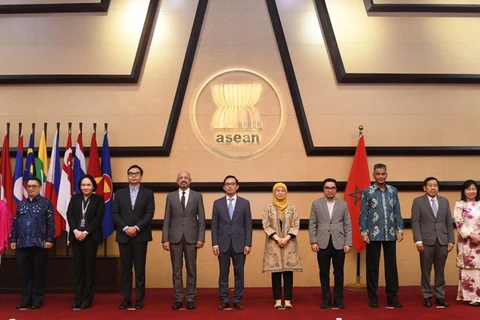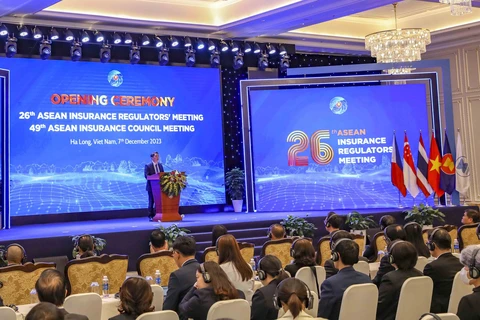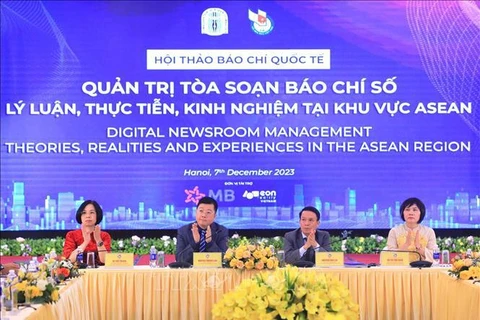Hanoi (VNA) – The Association of Southeast Asian Nations (ASEAN) plus Japan, China, and the Republic of Korea (RoK) agreed on December 7 to launch an emergency financing programme to deal with future pandemics and natural disasters, in their latest attempt to ensure financial stability in the region.
The envisaged launch of the Rapid Financing Facility comes as the ASEAN+3 group is seeking to boost the safety net under the Chiang Mai Initiative, created in the aftermath of the 1997 Asian financial crisis, to provide liquidity of up to 240 billion USD in times of emergency.
The agreement was reached at a meeting of senior finance officials from the group held in Kanazawa, Ishikawa prefecture, in central Japan.
After details are worked out, finance ministers and central bank governors from the group are expected to formally endorse it in May 2024.
Under the new facility, member nations can swiftly secure funds of up to half of what is allowed under the Chiang Mai Initiative without conditionality when an emergency funding need arises due to exogenous shocks such as natural disasters and pandemics, said Masato Kanda, Japanese vice finance minister for international affairs.
The finance ministers and central bank governors had agreed to explore the launch of a new financing programme, based on the view that speed is important in emergency funding./.
The envisaged launch of the Rapid Financing Facility comes as the ASEAN+3 group is seeking to boost the safety net under the Chiang Mai Initiative, created in the aftermath of the 1997 Asian financial crisis, to provide liquidity of up to 240 billion USD in times of emergency.
The agreement was reached at a meeting of senior finance officials from the group held in Kanazawa, Ishikawa prefecture, in central Japan.
After details are worked out, finance ministers and central bank governors from the group are expected to formally endorse it in May 2024.
Under the new facility, member nations can swiftly secure funds of up to half of what is allowed under the Chiang Mai Initiative without conditionality when an emergency funding need arises due to exogenous shocks such as natural disasters and pandemics, said Masato Kanda, Japanese vice finance minister for international affairs.
The finance ministers and central bank governors had agreed to explore the launch of a new financing programme, based on the view that speed is important in emergency funding./.
VNA






















